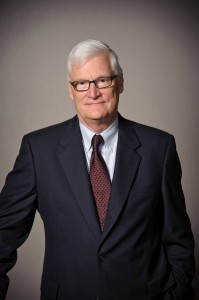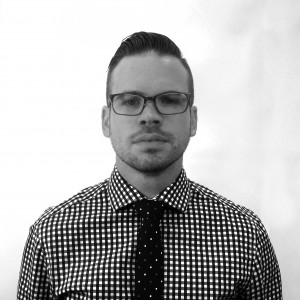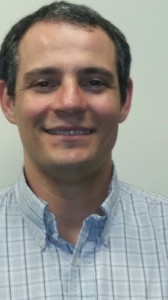Saturday Morning Address: “2013 Port Productivity Report: What Does It Mean for Industry?”
Brendan Neary, JOC Group
Brendan Neary is a Project Manager within the Engineering Department at JOC Group. In his capacity he drives major projects, programs, and initiatives to enhance JOC Group’s extensive proprietary and non-proprietary data sets that are used in JOC Group content, including articles on JOC.com, presentations at JOC Events and in specialized data products of PIERS. He has a passion for big data and sorting, reviewing and analyzing data for current trends, issues and causes. He currently works with the largest global container carriers to produce the unique Port Productivity data, the only global apples-to-apples measurement of port and terminal performance. Through this project JOC Group produces articles, conference presentations, white papers and visualized data products based on common berth productivity metrics. Lastly, he is assisting a company-wide data visualization initiative that will drive incremental value and “decision-ready intelligence” for JOC Group customers specifically in the Port Performance/Productivity Project. During his free time, he trains for and competes in Ironman Triathlons. In 2012 he completed Ironman New York City and recently in August of 2014 completed Ironman Louisville. He is looking forward to March of 2015, where he will be traveling to Melbourne Australia to compete in the Ironman Asia Pacific Championships.
Saturday Afternoon Address: “What Makes a Maritime Education and Seagoing Experience a Great Career Start?”
John Patterson, Vice Chairman, United Vision Logistics

Mr. Patterson credits the success he has enjoyed in very large part to his Maritime Education and related seagoing experience. He will share with us why he believes both a Maritime education and seagoing experience are a great way to start a career in virtually any field, in his case law and business, but many others as well. His comments will touch on not only career flexibility, hands-on management, and leadership skills, but critically important values like accepting responsibility, attention to detail, the value of hard work and the importance of people to one’s success. All of the foregoing he believes are inherent in a Maritime education and seagoing experience.
Last but not least he will explain why he believes Maritime graduates with seagoing experience are highly desirable business hires both afloat and ashore.
Mr. Patterson’s career spans 45 years, all of which have involved logistics of one kind or another.
He is a 1969 graduate of the United States Merchant Marine Academy and began his career as an active seagoing officer.
Upon graduation from the Marquette University Law School in 1975, he joined Schneider National and served in a variety of progressively responsible legal and management positions including Vice President and General Counsel and Vice President of Operations for Schneider Logistics.
For the past 29 years he has been employed in leadership and executive level positions by a number of companies involved in virtually all aspects of logistics and supply chain services. Those 29 years include 25 at the President and/or CEO level.
His experience includes three supply chain-related startups and two turnarounds, all of which were successful. The last startup he was involved with, Concentrek, made the Inc 500 list of fastest growing companies and was ultimately sold to UTi, a large global freight forwarder.
Mr. Patterson is currently serving as Vice Chairman of United Vision logistics of Lafayette, LA where he previously served as President and CEO.
Sunday Morning Address: “Maritime Education: What Industry Truly Needs from Academy Graduates”
Ira Douglas, Director of Marine Personnel, Crowley Maritime
In 2009, Crowley had a number of incidents on their vessels that changed their entire approach to what they deemed a qualified officer to serve on their ships and tugs. One of these incidents involved a new hire academy graduate. When the school was informed that their graduate had been involved in the accident, their response was that “had we asked, they would have told us not to hire the individual.”
While an extreme example, the stakes on industry have never been higher to push for flawless operations and drive safety to the highest level and the Maritime Academies play a critical role in this effort.
This presentation will focus on several questions:
- How can we integrate seagoing training for cadets so it is more meaningful?
- What can academies do to better assess knowledge in practice?
- How can employers better support Academies to impart practical navigation and engineering skills?
- How can the Academies and industry help underclassmen find their “niche” with the segmentation that is becoming more common among operators?
Ira Douglas is the Director of Marine Personnel for Crowley Maritime Corporation, overseeing the crewing function for over 2500 mariners. In this role, he is responsible for assuring all crew members are fully qualified medically and professionally. He also has responsibility for Labor Relations functions for the Jacksonville and Philadelphia terminals.
Ira has been a part of the United States delegation to the IMO for the Human Element, Training and Watchkeeping (HTW) subcommittee for the past two years. He is a member of the Merchant Personnel Advisory Committee (MERPAC) for the US Coast Guard where he was involved in making recommendations for much of the recent rulemaking for the implementation of the 2010 Manila STCW amendments.
He is a 2003 graduate of the United States Merchant Marine Academy where he majored in Marine Engineering Systems. He holds a license as 2nd Assistant Engineer- Motor, Unlimited HP and a certificate in Labor Relations Collective Bargaining from Cornell University’s ILR school.









All Rights Reserved © 2024 • Web issue?
Non-Discrimination Notice • Privacy Policy & GDPR